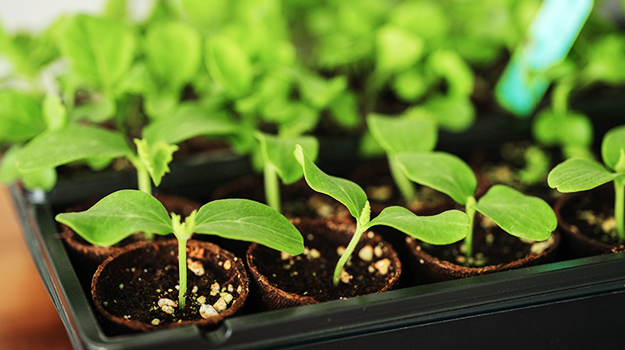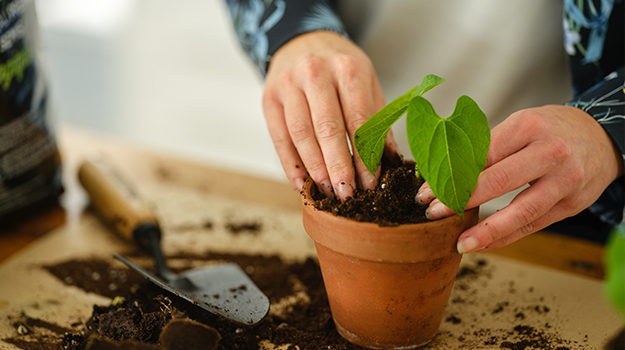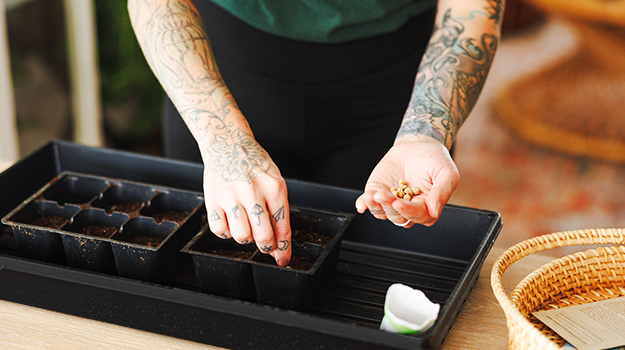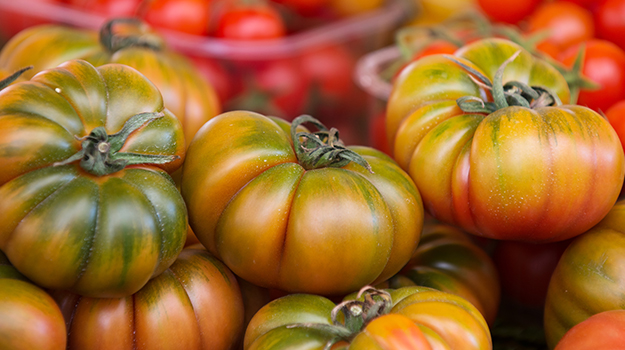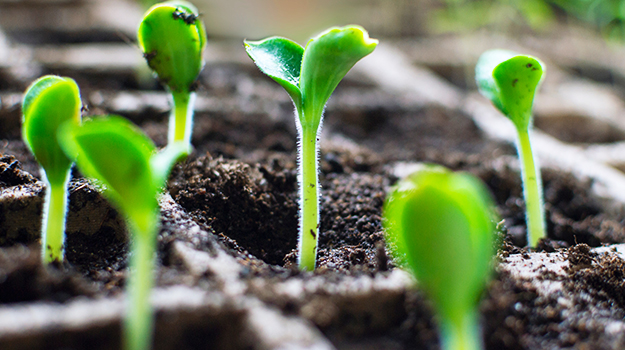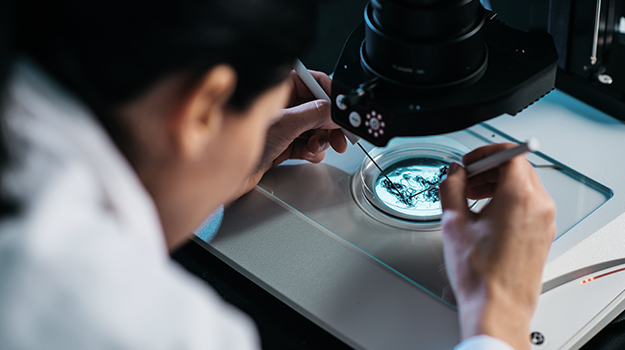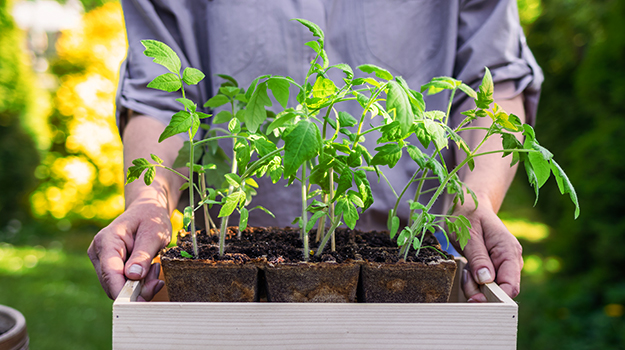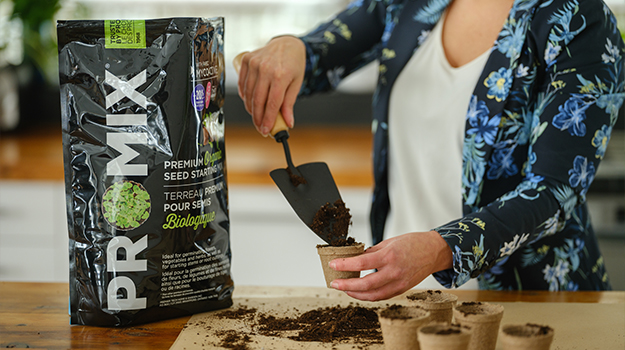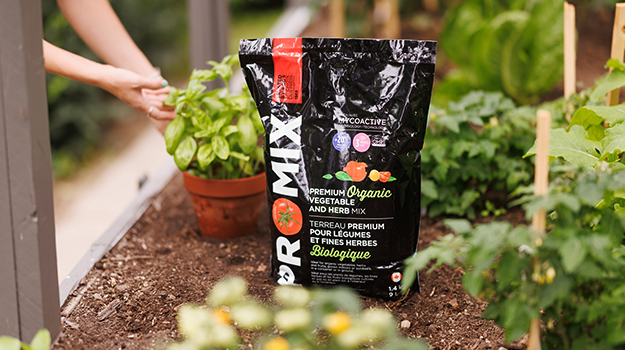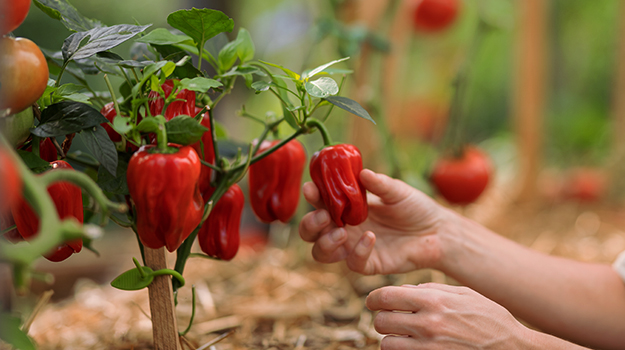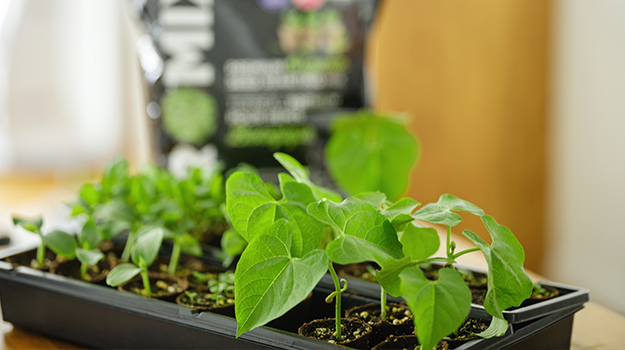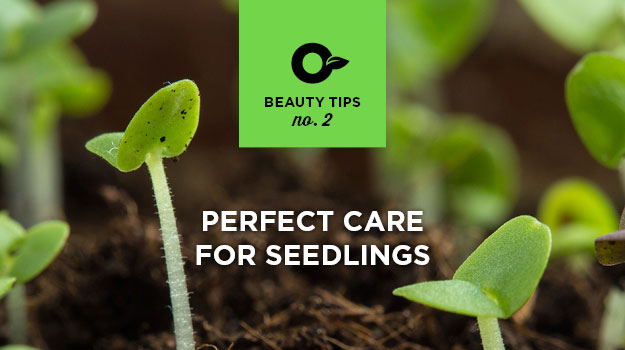Starting plants by sowing your seeds opens the door to a world of discoveries and flavours. This activity opens the possibility to planting rare, old and organic varieties that are difficult to find.
In addition to being a fun and rewarding activity for the whole family, sowing your own seed selection allows you to control your crops step by step to obtain organic vegetables without having to pay more.
What characterizes the organic vegetable garden?
Growing a vegetable garden brings great freedom, gives you more power of action and has a positive effect on health.
By deciding to go for an organic vegetable garden, you maximize all these benefits, both for yourself and for the planet.
How to craft an organic vegetable garden?
Here are the main principles of organic vegetable gardening.
- Do not use synthetic chemicals.
- Grow from untreated organic seeds.
- Save water.
- Bring together a variety of plants, adapted to the environment. They will need less care and will be more resistant to attacks.
- Promote rotations to have healthy plants without having to intervene with pesticides. (The Wilson product line offers several targeted* solutions that are both effective and environmentally friendly.)
- Use quality organic potting soil that will meet the needs of our plants.
- Enrich the garden soil with compost.
- Use an organic fertilizer to provide nutrients to the plants.
- Work the soil to a maximum depth of 25 cm. (Do not disturb the underground life on which the quality of the soil depends.)
- Limit weeds by applying mulch.
*When you use pesticides over large areas, you not only eliminate pests, but also beneficial insects.
Which seeds to choose?
If sustainable development and healthy eating are values that are important to you, designing an organic vegetable garden is a project that will come naturally to your family.
By selecting organic and untreated seeds (without phytosanitary treatment or the addition of chemical or synthetic products), we are making a choice that is healthy, environmental and delicious.
ORGANIC, F1, F2, GMO: how to find your way around and what to buy
The terms organic, heritage, hybrid F1 or F2 and GMO (genetically modified) refer to the way in which plants are reproduced.
Here are some details to help you choose better.
Heritage vegetables
They are called ancient vegetables, ancestral vegetables or heritage vegetables. As their name suggests, they come from seeds passed from one generation to another. They have been cultivated for a certain number of years and have stood the test of time.
Subject to open pollination, these varieties produce seeds which will yield seedlings identical to the mother plant. By harvesting your seeds, you will be able to faithfully reproduce the chosen vegetables, year after year.
F1 and F2 hybrid vegetables
Hybrids are the result of cross-pollination between two varieties of the same species (two different tomatoes for example). By combining the best qualities of two higher yielding varieties, we could create an even more promising plant.
This cross-breeding carried out in the laboratory could have occurred perfectly in nature, without any human intervention. In fact, humans have been doing this for hundreds of years by intentionally planting different plants side by side in the hope of seeing a more efficient cross emerge.
Seed packets containing F1 hybrid varieties bear the obligatory marking HF1. These are first generation hybrids. The F2s are second generation, and so on.
Have you collected the seeds from your own F1 hybrid plants with the aim of planting them next year? You might be amazed at the results.
The second-generation hybrid - the F2 you're about to create - generally has some hit-and-miss qualities. So your plants, like your vegetables, may not necessarily have the same resistance, the same shape, the same colour, etc.
Genetically modified seeds (GMO)
Rest assured, GMO seeds are not available to the general public. So, you don't have to worry about buying one by mistake.
GMO seed development involves the introduction of foreign genes from another plant species, animal or microorganism. Unlike naturally cross-bred hybrids, GMO seeds could never have been possible in nature, without human intervention. (Take for example the presence of the natural pesticide Bt in the genetic composition of corn which makes it resistant to certain parasites.)
Genetically modified organisms are the subject of much debate, with their long-term effects remaining uncertain. Still, because GMOs tend to produce greater yields in field crops, they could be the solution to feeding an ever-growing global population.
Organic seeds
Organic vegetables come from a production method that respects both the environment and biodiversity. To earn the organic designation, they must be guaranteed GMO-free and have been produced without synthetic chemicals.
Check the presence of logos on the packaging of approved products. Organic certification guarantees that the seeds are entirely produced in an environmentally friendly process. They have not been genetically modified, and insect and disease control has been achieved using only government approved organic standard products.
Because organic certification is a complex and expensive process, some organic seed companies forgo the process. Their seeds may meet the standards, but since no organization guarantees it, you have to trust their word.
What type of soil should you choose for your seedlings?
Sowing seeds allows you to control the quality of what you plant and that of the soil in which you grow your food. You should provide organic seeds with a healthy environment to grow and flourish.
The main advantage of organic potting soil is its natural composition. It has not been treated and does not contain pesticides or synthetic fertilizers. This is reassuring when it comes to growing the fruits and vegetables that you will be eating.
PRO-MIX organic certified seedling soil is composed of sphagnum peat moss, peat humus, coconut fibre and organic fertilizer. It promotes germination and the formation of a healthy root system for better absorption of water and nutrients. Your plants will also be less sensitive to transplant shock.
Our Organic Potting Mix benefits from the 100% natural MYCOACTIVE technology. This natural growth stimulant contributes to larger fruits and vegetables and a more abundant harvest.
To find out all the benefits of organic seedling soil, consult: PRO-MIX Premium Organic Seed Starting Mix
What is the best soil for a vegetable garden?
Whether you grow in a container or in the ground, your vegetable garden must be ready to receive your seedling transplants. Our Premium Organic Vegetable and Herb Mix contains sphagnum peat moss, compost, perlite, mycorrhizae and an organic fertilizer that feeds your plants for up to 3 months.
To find out when to transplant your seedlings to the vegetable garden, consult our practical table: Starting Vegetable Seeds Indoors: The Complete Guide
Organic fertilizer
PRO-MIX organic garden fertilizers are designed to improve soil nutrition and optimize growing conditions. They contain all the ingredients plants need to grow healthy and provide an optimal harvest.
Using organic fertilizer is a health decision, but also an environmental one since it helps preserve soil. It also enhances good microbial activity in the soil to deliver nutrients to the roots.
To know how often to fertilize and how much to use, follow the recommendations on the package. When in doubt, remember that it’s better to use less than too much.
Finally, do not apply fertilizer in very hot, dry weather.
To discover all our organic fertilizers: Vegetables and herbs | Gardening with PRO-MIX
The quest for the perfect vegetable
Creating better vegetables without resorting to hybridization is possible by seeking the desired qualities in organic plants. A good plant can have its seeds saved and planted year after year and allow us to manage desirable criteria. We can even succeed to reproduce this desirability faithfully, which is impossible with hybrid seeds.
Better yet, over time, plants adapt to their environment and become resilient.
This is how old vegetables have managed to retain their former flavours. And this is how thousands of varieties, good for health and the environment, appeared.

